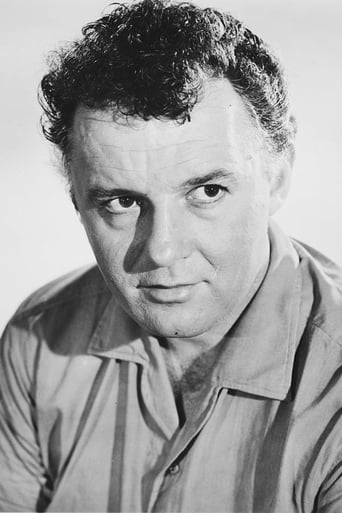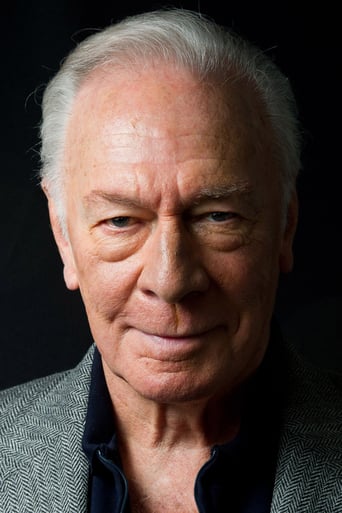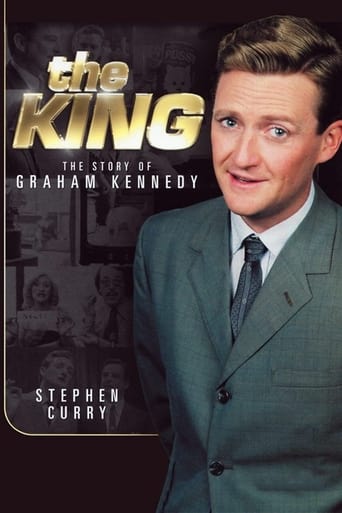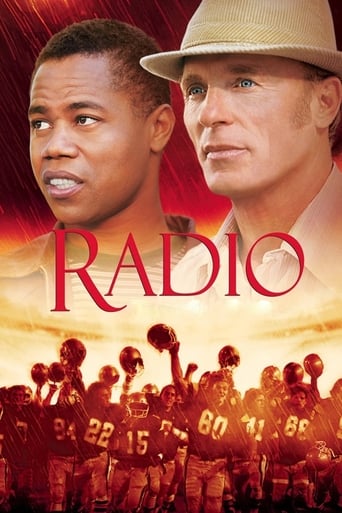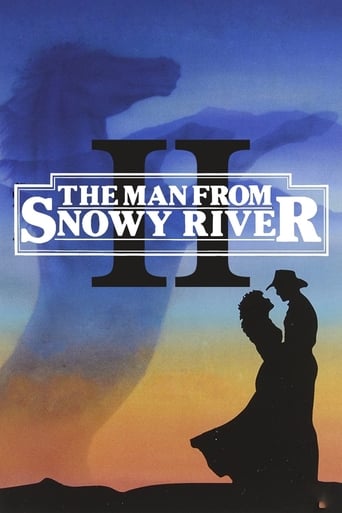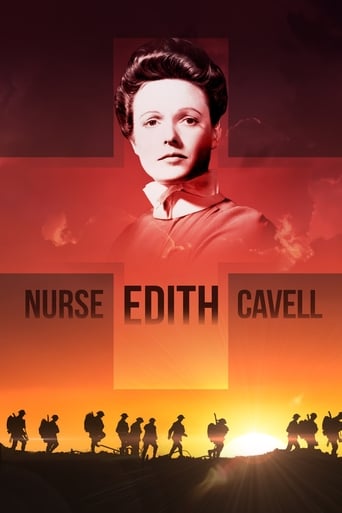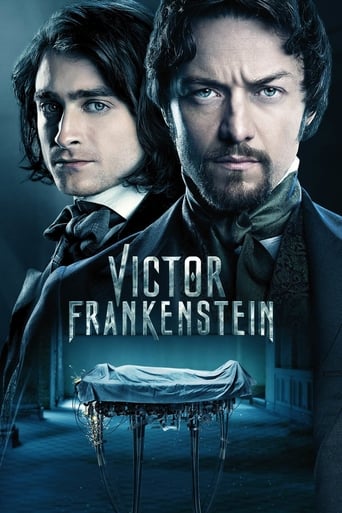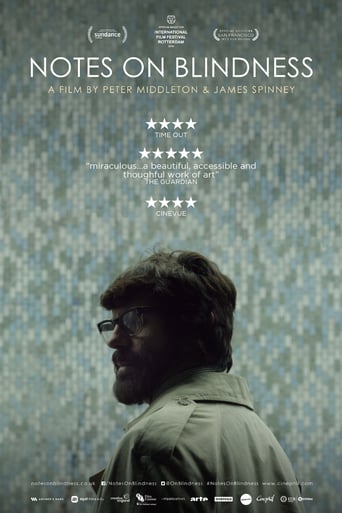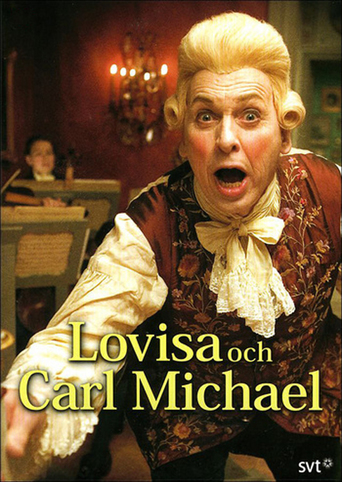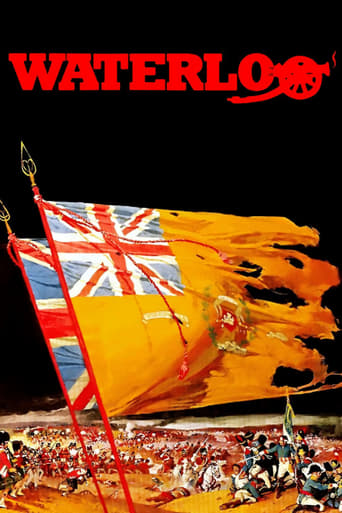
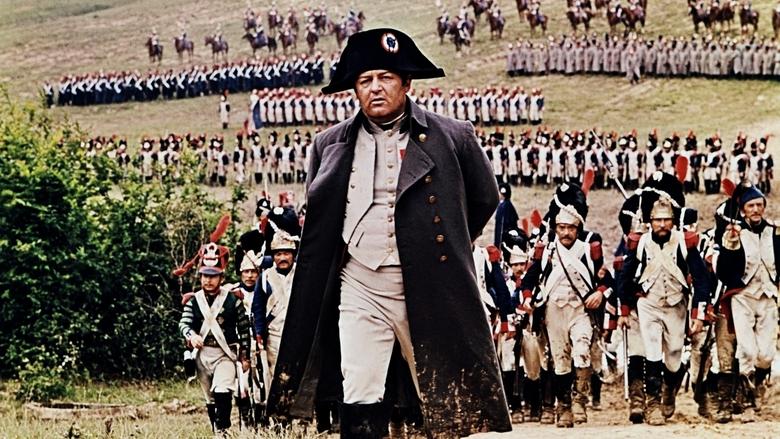
Waterloo (1970)
After defeating France and imprisoning Napoleon on Elba, ending two decades of war, Europe is shocked to find Napoleon has escaped and has caused the French Army to defect from the King back to him. The best of the British generals, the Duke of Wellington, beat Napolean's best generals in Spain and Portugal, but now must beat Napoleon himself with an Anglo Allied army.
Watch Trailer
Cast


Similar titles
Reviews
The image of General Robert Lee keeps popping into my mind when I was watching Emperor Napoleon in Waterloo (1970).Both men were fighting for a lost cause. Both battles were the high watermark of the two tragic characters.Both Lee and Napoleon were occupying the low area of the battleground, and were determined to wipe out their rivals on the high ground. Both failed.Napoleon didn't get one third of his force under Grouchy, which he needs badly to push Wellington off balance. Lee didn't get the intelligence of General Meade's Army in time, without the help from his cavalry commander, General Stuart.One thing is for sure, the battle scenes in Waterloo (1970) are much more magnificent than those in Gettysburg (1993).
Sergey Bondarchuk knew how to make epic war films - his War And Peace is a real masterpiece of grand scale battle scenes, deep emotional ups and downs, real psychologies, decent camera work and naked nerve tension. Here, he repeated his winning formula, but in some ways, he failed to make it a perfect war movie. Why did it happen? Since I am not a movie critic, but merely a movie fan, I can draw my conclusions on several bases - 1. The movie is too long at times and has a bad tendency to drag, which makes it a bit painful to endure. 2. There are obvious goofs and errors in editing, very clear and evident, which rob us of bigger enjoyment. 3. Some parts are performed very shallow and not so deeply convincing. Yeah, even the main characters do suffer some over-play syndrome. 4. The ideas are repeated shamelessly from War And Peace - it is very clear and obvious. All of that add to a lesser rating of a somewhat faulty but still good movie
One has to admit that director Sergey Bondarchuk has very impressively marshalled the resources necessary, and then planned and used them in recreating the battle of Waterloo - the epic scale of the battle is all over the screen.Unfortunately, the film doesn't convey the progress of the battle with coherence in the way that, say, Zulu does. And the battle is edited together from some shots which are beautifully captured in the camera and some which are plainly shambolic.And once one moves away from the battle, things go further downhill. The dubbing for many of the non-English speaking cast is very noticeable, much of the acting is not very good, and Rod Steiger's mannered histrionics as Napoleon are simply awful.I thought this film was not very good at all.
The film has terrible, near-fatal flaws, but if you love history you should watch it. Rod Steiger doesn't work remotely as Napoleon for me, I wouldn't follow this guy to cross the street, much less into battle. Still, any depiction of Napoleon is at least somewhat interesting, and worth watching. (I wonder if they could have gotten Brando for the role if they had tried. He needed the work. He was supposedly box office poison at the time, this was just before The Godfather. Maybe he was shooting Burn!, I don't know.) Christopher Plummer is very good as Wellington, somewhat one-dimensional, but capturing the essential thing - the steely confidence of the British aristocrat/warrior of the early 19th century. The best film portrayal of Wellington ever.For me, use of sound is 25 percent of a film, and the sound in this film is not good - not only the bad dubbing but the tin-eared, non-inspiring, non-moving use of music (except for the ball sequence). Ruinous, IMO. My favorite moment in the film is when Napoleon rides his white horse onto the field and Wellington watches from a distance through a telescope - watches a faint blur of glory racing along. I get the feeling that the actual moment, in 1815, must have been very much like this. But the sequence is hurt by the fact that the close-up of Steiger is staged, he's not really riding a horse, he apparently is riding some sort of mechanical contraption that is meant to mimic a horse's movements but really doesn't, and is filmed from the chest up. This contraption is used repeatedly in the movie. I realize the need for it - it allows close-ups of good actors who may not be good on horseback, and/or it allows for a steady shot before the invention of the Steadicam - but I file it under "seemed like a good idea at the time."The scenes of actual combat are OK, no better than that. If you want really good Napoleonic battle sequences see the Soviet version of War and Peace, also directed by Bondarchuk. He also does a ball sequence in that film that's excellent. He's also better at the small, intimate moments, as with Natasha's dance in the cabin. Dunno what happened to the guy in the two years between War and Peace and Waterloo. The single most interesting thing about this movie is that its box office failure caused Stanley Kubrick to lose his backing for a Napoleon film. What a tragedy. But then, as Napoleon well knew, the vagaries of fate can shatter the best-laid plans.


